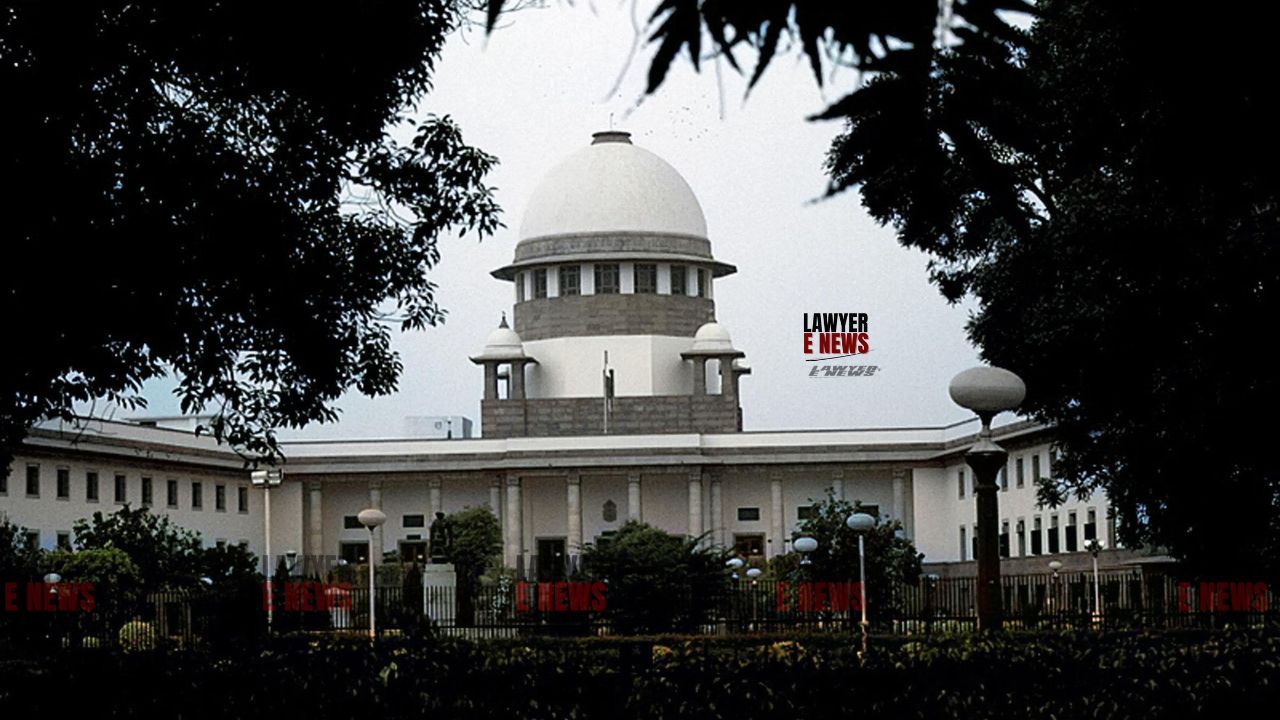-
by Admin
16 February 2026 1:47 PM



Reasonable: Supreme Court Reduces Interest and Compensation Ordered by High Court Statutory Authorities Aren’t Personal Wrongdoers—Public Officials Can’t Be Punished as Private Builders - Supreme Court setting aside the 15% interest and ₹10 lakh compensation awarded by the Bombay High Court in a consumer housing delay case, and restoring the National Consumer Disputes Redressal Commission (NCDRC)’s order which had fixed interest at 9%. The Court also reduced the compensation from ₹10 lakh to ₹7.5 lakh, noting that the appellant was a public authority, not a private real estate developer.
Justice J.K. Maheshwari and Justice Aravind Kumar held:
“While there was certainly deficiency in service and delay in possession, the High Court’s enhancement of interest to 15% was excessive. NCDRC’s finding of 9% interest was fair, and the compensation must also reflect the public character of the institution.”
Allotment in 2010, Payments Made by 2013, Possession Not Delivered—Repeated Delay and Additional Demands Compelled Homebuyer to Seek Refund
The respondent-homebuyer was allotted a 3 BHK flat by MHADA in a 2009 lottery and had paid all instalments by August 2013. Despite this, possession was not handed over, and the Board raised additional demands under threat of cancellation. The buyer paid even the excess but was still denied delivery.
He filed a consumer complaint alleging deficiency in service and unfair trade practice, which was initially allowed by the State Commission with 15% interest and ₹10 lakh compensation. On remand, a similar order was passed again in 2019. When MHADA challenged it before the NCDRC, the forum reduced interest to 9% and compensation to
₹50,000. The homebuyer then approached the High Court under Article 227.
The Bombay High Court set aside the NCDRC order, restored 15% interest, and revived ₹10 lakh compensation—leading to the appeal before the Supreme Court.
Public Housing Authority Not Comparable to Private Builders—Punitive Interest Cannot Be Imposed Without Context
The Supreme Court emphasized that the appellant, being a statutory housing board, did not act out of personal gain or malice, and thus should not be penalized like a private builder operating for profit.
The Bench observed: “The appellant is an instrumentality of the State. Delay, though undeniable, is not attributable to personal animosity. Relief must reflect fairness—not retribution.”
The Court distinguished the facts from Rohit Chaudhary v. Vipul Ltd., where 12% interest was allowed for office space delay, noting that housing needs and government backed projects must be treated with calibrated equity
Consumer Has Undeniable Right to Refund With Interest—But Reasonableness Must Be Guiding Principle
While affirming the homebuyer’s right to opt for refund instead of delayed possession, the Court noted that interest must balance compensatory and deterrent functions, without becoming punitive.
Relying on Bangalore Development Authority v. Syndicate Bank [(2007) 6 SCC 711], the Court restated: “When delivery is not made within time, refund with reasonable interest is justified. But where price was fixed and no proof of profiteering or extortion exists, excess interest is unwarranted.”
Final Verdict: 15% Interest Set Aside, 9% Restored, Compensation Cut to ₹7.5 Lakh
The Supreme Court allowed the appeal in part:
Restoring NCDRC’s award of 9% p.a. interest
Reducing compensation from ₹10 lakh to ₹7.5 lakh
Confirming refund of the principal amounts paid
Recognizing that the appellant had already deposited the amounts ordered
The Court concluded: “We deem it proper to reduce the compensation payable… as it would meet the ends of justice. The appeal is partly allowed. No order as to costs.”
This ruling reinforces the homebuyer’s right to seek refund with interest when delayed beyond reason, but also draws an important distinction between state-backed housing authorities and commercial builders. The Supreme Court has signaled that public accountability must be tempered with institutional fairness, ensuring that justice does not turn into overcompensation.
As the Court aptly summarized: “Equity must walk hand in hand with justice—not ahead of it. While consumers deserve relief, statutory institutions deserve measured remedies.”
Date of Decision: 26 March 2025
